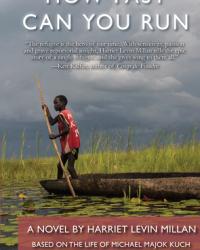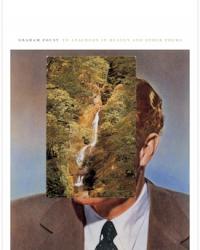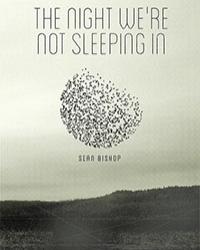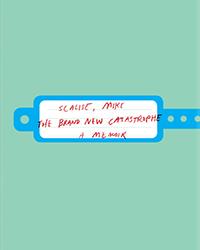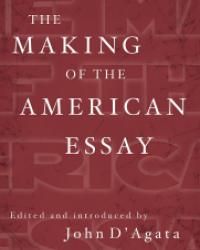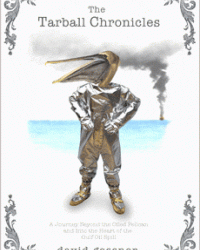Book Reviews
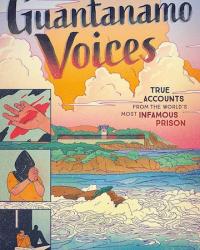
Reviewed by:
Frances Cannon
Guantanamo Voices: True Accounts from the World's Most Infamous Prison
by Sarah Mirk
Abrams Books, September 2020
$24.99, ISBN: 978-1-4197-4690-1
208 pages
Frances Cannon is a writer and artist currently living in Vermont, where she teaches at... more
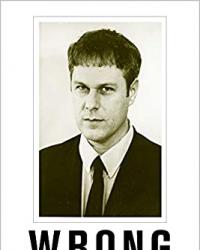
Reviewed by:
Nate Kouri
Dennis Cooper’s hallucinatory blankness seems immune to context. When you read the best of his work, it clears your mind of everything else as completely as a dose of anesthesia or a brick to the head. Wrong: A Critical Biography of Dennis Cooper doesn't give you a good sense of what his books are like. The prose is dry and full of academic t-crossing, and it rarely deals with the... more

Reviewed by:
George Fragopoulos
“God,” Simone Weil writes in Gravity and Grace, “gave me being in order that I should give it back to him. It is like one of those traps whereby the characters are tested in fairy stories and tales of initiation. If I accept this gift it is bad and fatal; its virtue becomes apparent through my refusal of it. God allows me to exist outside himself. It is for me to refuse this authorization... more
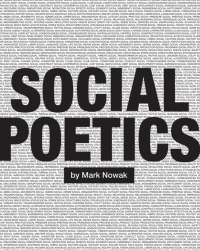
Reviewed by:
Amish Trivedi
In my own work, I am endlessly wrapped up in the university, that nineteenth-century institution which was envisioned as a way of educating those who would have to continue the work of building a democratic state. The university was a place where the citizenry would gain cultural knowledge so they could become educated and would then be able to debate and argue and build consensus in order to try... more

Reviewed by:
Jane Huffman
Dora Malech has never been afraid of flourish: whip-smart, wind-whipping, hair-raising masterstrokes of language define so many of her poems. (Recall “The Kisser”: “Drew the short straw, scared herself apart / to spit-sweet shards and into time that counted / backwards from two lips ago.”) But in her new book Flourish, Malech produces a subtler vision of her wit and tenor—an orchestra... more
Pages
Reviewed by:
George Fragopoulos
“God,” Simone Weil writes in Gravity and Grace, “gave me being in order that I should give it back to him. It is like one of those traps whereby the characters are tested in fairy stories and tales of initiation. If I accept this gift it is bad and fatal; its virtue becomes apparent through my refusal of it. God allows me to exist outside himself. It is for me to refuse this authorization... more
Reviewed by:
Ian Faith
If you’ve been paying attention to video games at all over the last decade, you know that writing has become an integral part of the medium. Nearly every game from independent to big budget “triple A” studios, features some type of narrative, if only to justify its own mechanics. Although subject to skepticism by gamer culture, games within the so-called walking simulators genre like Gone... more
Reviewed by:
Jack Smith
Author of two novels and story collections, Christine Sneed is a master of short as well as long fiction. It’s the inner spaces where Sneed truly excels, with a riveting prose style that captures the depths of her characters’ thoughts, feelings, and conflicted selves. The stories that make up her most recent collection The Virginity of Famous Men reveal an extraordinary range of types.... more
Reviewed by:
Nicole Banas
In 2000, the U.S. government granted political asylum to almost 4,000 unaccompanied minors from South Sudan. These so-called “lost boys” had survived deadly fighting between the Sudanese government and the Sudanese People’s Liberation Army during the country’s second civil war. Many had walked thousands of miles, seeking shelter in Ethiopia before being expelled back to Sudan or to refugee camps... more
Reviewed by:
Eric Farwell
With Jonathan Safran Foer’s gritty new novel, Here I Am, it’s hard not to read it in the context of his recent public divorce. The 571-page work deals with a nearly middle-aged Jewish couple who are drifting apart and going through the motions of separation. The book does its best to account for small moments that keep a marriage together or destroy it, articulating both how invisible... more
Pages
Reviewed by:
Devon Walker-Figueroa
Max and I were first introduced to each other in 2015 and immediately bonded through a series of ensuing e-mail and text correspondences—usually about poetry, but also about painting, glass blowing, and balloon races, among other things. In addition to this more casual exchange, I read and gave Max editorial feedback on early versions of Four Reincarnations. Indeed, I loved the poems I found within its pages so much that I... more
Reviewed by:
Davy Knittle
Ali Cobby Eckermann’s Ruby MoonlightAli Cobby Eckermann’s Ruby Moonlight (Flood Editions, 2015) is a verse narrative focused on Ruby, an Aboriginal teenager, whose family is killed by white settlers in a late-nineteenth-century attack. Most of the poems follow Ruby after the massacre, as she meets and falls in love with Jack, a white fur trapper, and as she negotiates the aftermath of her loss. It’s Ruby’s attunement to the... more
Reviewed by:
Carrie Chappell
Few words bewitch the senses quite like those that recall the world of food. And even fewer ignite the prosaic ear in worlds of poetry. Yet, Lilah Hegnauer did not choose to call her second collection “Snickers bar,” “bell pepper,” or even “cellar door.” Pantry—winner of the 2013 New Southern Voices Book Prize selected by D.A. Powell—arrives in humble felicity. Here, among the canned, jarred, and bagged, is where Hegnauer unleashes her... more
Reviewed by:
Ted Mathys
There is a well-worn creative writing cliché that a writer must “find” her voice. The Internet drips with advice for the aspiring writer looking to do this, some of it reading like self-help lit for those trying to professionalize. In a blog post titled “Find Your Poetic Voice” on the Writer’s Digest website, for example, Laurie Zupan writes: "I realized that what I didn’t have was a clear, working definition of poetic voice. So I set... more
Reviewed by:
Patrick Whitfill
Sean Bishop’s debut collection of poems is not, as the foreword states, for the faint of heart. These are poems of longing and loss, of wishing and wishes, of desire, and of the unequivocally true knowledge that wishes do not, and will not, come true. These poems unsettle the ground and call into question our own connections with our family and with language, as well as our religious and secular understanding of the world. Throughout The... more
Pages
Reviewed by:
Nate Kouri
Dennis Cooper’s hallucinatory blankness seems immune to context. When you read the best of his work, it clears your mind of everything else as completely as a dose of anesthesia or a brick to the head. Wrong: A Critical Biography of Dennis Cooper doesn't give you a good sense of what his books are like. The prose is dry and full of academic t-crossing, and it rarely deals with the... more
Reviewed by:
Ethan Madore
There’s a scene in Mike Scalise’s The Brand New Catastrophe where Scalise, twentysomething and struggling to find full-time work in New York City, arrives in Central Park for a job interview. In short, it’s a catastrophe. Scalise, having spent days imagining this job—and its benefits package—as his last chance, a final lifeline into honorable employment and actual health insurance,... more
Reviewed by:
Frances Cannon
John D’Agata is a champion of the essay, a crusader for lost forms, a defender of nonfiction as an art. The recent publication of The Making of the American Essay, the third volume in D’Agata’s essay-anthology trilogy, shifts his position from expert to shaper; through his curation and introductions to these essays, D’Agata proves himself to be not only a scholar and proponent... more
Reviewed by:
Kristina Marie Darling
From the very beginning, readers are conditioned to focus on the words that appear on the page, their semantic meaning and the larger architecture of plot and theme to which they give rise. It is not often that writers ask us to look away from the text proper, to consider what is possible within the margins of a literary work, or even within the small spaces between the words themselves. Yet... more
Reviewed by:
Jeremy Griffin
As a native of Louisiana, I followed closely the events surrounding the 2010 BP oil spill. I remember the grisly footage of the black oil jet spurting up from the floor of the Gulf, and I recall the succession of fruitless strategies put into effect until finally the breach was contained. But most of all, I remember the feelings of frustration this evoked in residents, who were virtually... more


